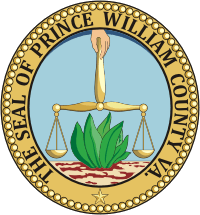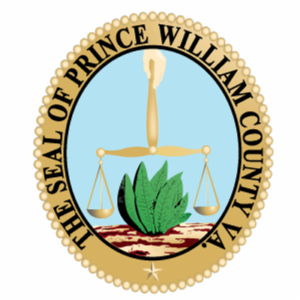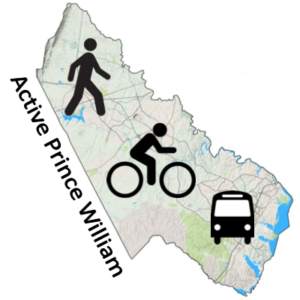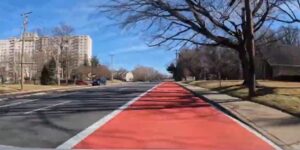
PWC BOCS,
After reviewing Agenda Item 8A on the 1/21/25 PWC BOCS Agenda, we are disappointed there was no public announcement and input opportunity for these priorities/plans before the agenda’s release.
While we acknowledge that the Route 123/Old Bridge Rd flyover, Sudley Manor Dr/Route 234 Interchange, and Clover Hill Rd/Route 234 Intersection are active projects, we are disappointed that the Route 1 widening project is part of this agenda item.
This Route 1 corridor segment, which includes the highest ridership Omniride local route (53 | Dumfries Connector), provides an opportunity to scope a major transit project by adding bus lanes or business access and transit (BAT) lanes.
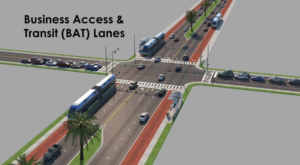
Route 1 should be designed as a walkable and livable mixed-use regional activity center, not as a mini I-95. The county should reject the long-discredited mindset that widening commercial roadways is a viable long-term strategy that improves resident quality of life.
Such widening projects induce an even-higher vehicle mode share, burden families with increased vehicle ownership costs, render active mobility unsafe and miserable, and generate negative environmental externalities, such as noise, air, and water pollution. This project would depress transit ridership in favor of increased vehicle speeds, reduced safety, and more traffic congestion for future generations. These outcomes are in direct conflict with many proposed strategic plan goal elements.
While PWC transportation staff is proposing widening Route 1 this week, Arlington County and VDOT are recommending removing interchanges from their section of Route 1 and lowering the speed limit to 25 MPH, to reconnect the community as part of major economic development initiative, while Fairfax County and VDOT are advancing a major Bus Rapid Transit initiative along Route 1.
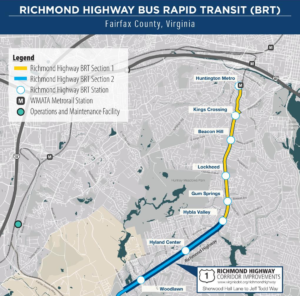
Prince William County is no longer a rural/exurban county with 200,000 people like Stafford County; it’s an increasingly urban county of almost 500,000 people that must significantly diversify its transportation mode share to improve quality of life for its residents.
We need to prioritize affordable housing AND affordable transportation.
We recommend the PWC BOCS:
- Gather resident input on more sustainable alternatives for this Route 1 segment
- Initiate a Citizen Transportation Advisory Commission, to vet transportation project priorities in a public forum before they reach the BOCS agenda
- Prioritize projects that reduce Vehicle Miles Traveled
Thank you for considering this feedback.
